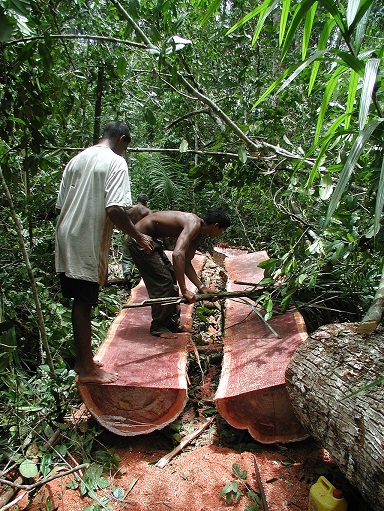Delays continue over signing of Guyana-EU trade agreement to combat illegal logging
A deadline for a trade agreement involves establishing Guyana as a source of legally-sourced timber and timber products.
- Part of the process involves setting up a Voluntary Partnership Agreement, or VPA - a trade agreement between the EU and a timber-producing country to ensure legal sourcing.
- Negotiations, which take place under the auspices of the EU’s Forest Law Enforcement, Governance and Trade (FLEGT), are expected to continue for much of 2017.
- Delays with VPA’s are not unheard of, but a new deadline on the Guyana trade agreement has been pushed back to the end of 2017.
GEORGETOWN, Guyana – Guyana’s plan to sign a trade agreement with the European Union by the end of 2016 to combat illegal logging has been delayed again.
At the fourth Voluntary Partnership Agreement (VPA) negotiation session of the Forest Law Enforcement, Governance and Trade (FLEGT) agreement held in March 2016, Guyana had said it remained committed to signing the VPA by the end of 2016. A VPA is a legal trade agreement between the EU and an external timber-producing country meant to ensure the legal sourcing of timber and timber products exported to the EU.
However, Kenny David, head of the EU FLEGT Secretariat at the Guyana Forestry Commission (GFC), said in an interview that the deadline has been pushed back to the end of 2017 because it was recognized as too ambitious.
“Both parties agreed that to ensure the credibility of the VPA, the timeline had to be adjusted,” David wrote in an email. “After the last round of consultations, which concluded in August, there were some concerns raised by key stakeholders groups, which needed to be addressed.”
Those key stakeholders include loggers, logging associations, Amerindian villages and communities, sawmillers, timber exporters and government agencies, and others.
David, who is also assistant commissioner of forests for Guyana, has been involved with the negotiation process since the beginning. He said that Guyana and the EU are still working toward their ultimate goal.
This is the second time the timeline for signing the agreement has been pushed back. When Guyana began the process in March 2012, the negotiations joint roadmap anticipated ratification in 2015.
=To be Continued=


